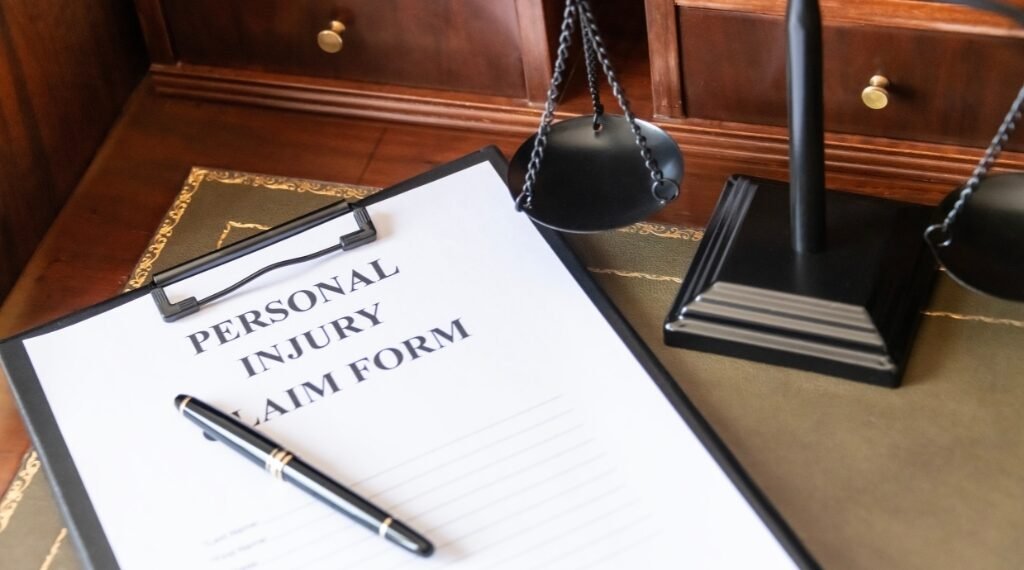Discover a Comprehensive Guide to the Personal Injury Process, covering claims, legal steps, and tips to maximize your compensation.
Filing a claim for a personal injury is daunting, and the trauma of the accident only makes the issue worse. Whether you are involved in a car accident, slipping and falling, or you are involved in an accident at the workplace, having some idea about the process involved in making a claim lessens some of the pressure. In this entry, we are going to guide you through the general process involved in making a claim, what you are most likely to experience at each point, and how long the whole experience normally lasts.
Table of Contents
Step 1: Seeking Medical Treatment
The first and most essential thing to do in case you are involved in an accident is to visit a doctor. Your health first. Even if you feel okay, some injuries are not immediately apparent. Being seen by a doctor, apart from helping to keep you in good health, also gives you an official record of injuries, and this helps to substantiate your claim.
Step 2: Document Everything
Once you’ve received the necessary medical care, begin recording all the facts about the accident. This comprises
These documents are to be employed to support your claim and to define the nature and extent of your damage and injuries.
Step 3: Hire a Personal Injury Firm
Navigating the claim process is frustrating and cumbersome. This is the reason you might consider calling a personal injury firm. A trained attorney at the office can assess your case, advise you about your rights, and guide you through what you could be reimbursed. The attorney also deals with the insurance company, so you don’t have to.
Step 4: Making a Claim
After gathering all the documents you are entitled to, and having discussed the case with your attorney, the last thing to do is to report the claim to the at-fault party’s insurer. This typically means forwarding to them a demand letter, listing your injuries, medical treatment, lost wages, and other damages you are claiming. If you’re unsure how to draft or present your demand letter, consulting an injury lawyer Ottawa can provide the guidance you need to protect your rights and strengthen your claim.
Timeline for Making a Claim
Step 5: Negotiation Phase

Once you’ve made your claim, negotiations shall be opened. The offer to pay you a settlement by the company shall be based on how they assess your case.
What to Expect During Negotiation
It’s important to resist the urge to leap at the offer and decide first before you fully understand the implications. You want all future medical bills and issues to be covered.
Step 6: Where Necessary, Discovery Phase
If negotiations fail and you decide to pursue litigation, the next phase is called discovery. This is the point at which both parties accumulate evidence to substantiate their respective positions.
Key Components of Discovery
The discovery period typically lasts from a few (6 months to a year and beyond) depending on the case’s complexity.
Step 7: Mediation or Trial
After discovery, most are mediated—a process in which the two parties attempt to resolve the conflict through the use of an objective mediator. Your case could be submitted to trial if the mediation isn’t effective.
Trial Timeline
It’s worth noting, also, that the majority of personal injury lawsuits are settled outside the courthouse, so don’t be discouraged if negotiations are slow.
Conclusion
Filing a claim for a personal injury comprises numerous steps and usually takes from a few weeks to a few years. It’s daunting at first, but getting to know each step helps to demystify the experience.
Remember that each case is different; the facts in your case and the inclination of the insurance providers to bargain are just some examples of the many ways the timeframe could be prolonged. For example, in the case of the Yost CCS Transportation lawsuit, the case presented intricate issues in law and so created extended delays in the timeframe because the case presented disagreements in the law.
Ultimately, working through a law office handling personal injuries can provide great support along the way. Not only will they ensure you are compensated in a fair manner, they also ensure you are comfortable throughout what could be a very stressful ordeal. Whether you are in the midst of considering making a claim or simply want to become aware of what options are available to you, don’t hesitate to seek the expertise of professionals. Your health and well-being are worth it!


